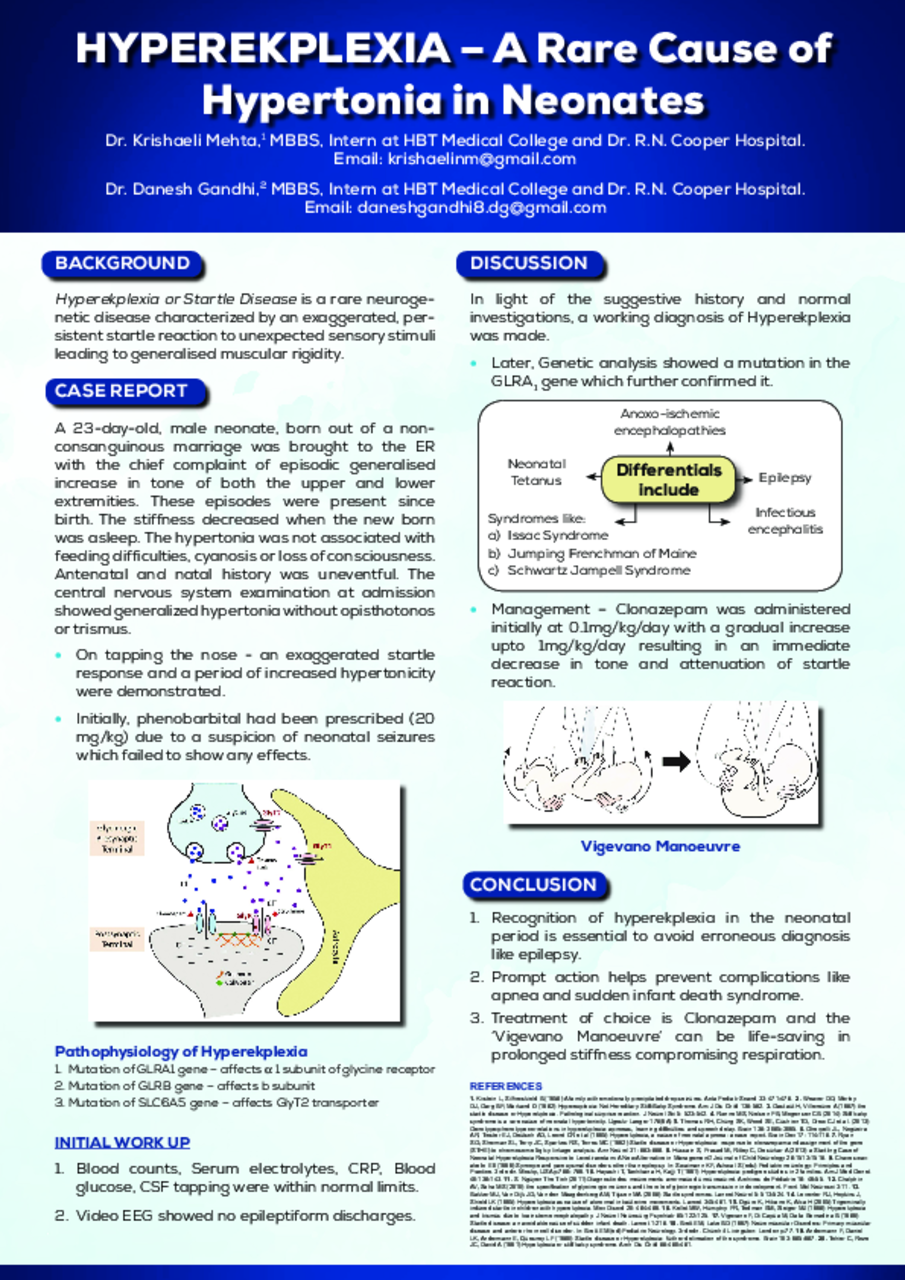Abstract
Background
Hyperekplexia or Startle disease or Stiff baby syndrome is a rare neuro-genetic disease characterized by an exaggerated, persistent startle reaction to unexpected sensory stimuli leading to generalised muscular rigidity. It can be described as a glycine synaptopathy with known mutations residing in the major constituent parts of the inhibitory glycinergic system.
Patient presentation
A 23-day-old, male neonate, born out of a non-consanguinous marriage was brought to the ER with the chief complaint of episodic, generalised increase in tone of both the upper and lower extremities.These episodes were present since birth. The stiffness decreased when the newborn was asleep. The hypertonia was not associated with feeding difficulties, cyanosis, loss of consciousness. Antenatal and Natal history was uneventful. The Central nervous system examination at admission showed generalized hypertonia without opisthotonus or trismus.On tapping the nose,an exaggerated startle response and a period of increased hypertonicity were demonstrated. The rest of the clinical examination was unremarkable. Initially, phenobarbital had been prescribed (20 mg/kg) due to a suspicion of neonatal seizures which however failed with no change in the attack frequency.
Initial Workup
1.Blood counts , C- Reactive Protein, Serum electrolytes, Blood glucose and CSF tapping were within normal limits.
2.Trans-fontanellar ultrasound was normal.
3.Video EEG showed no epileptiform discharges.
Diagnosis
In light of the suggestive history and normal investigations, a diagnosis of Hyperekplexia was suspected.
Management
Clonazepam was administered to the patient. Initially at 0.1/mg/kg/day with a gradual increase to 1mg/kg/day resulting in an immediate decrease in tone and attenuation of startle reaction. Later, Genetic Analysis showed a mutation in the GLRA1 gene which further clinched the diagnosis.
Conclusions
Recognition of hyperekplexia in the neonatal period is essential in avoiding erroneous diagnoses like epilepsy. A consistent generalised flexor spasm in response to tapping of nasal bridge (without habituation) is the clinical hallmark. Treatment of choice is clonazepam and the 'Vigevano Manouvre' can be life-saving in prolonged stiffness compromising respiration.





